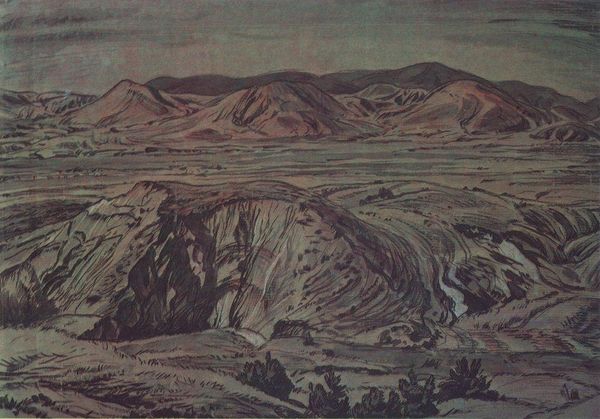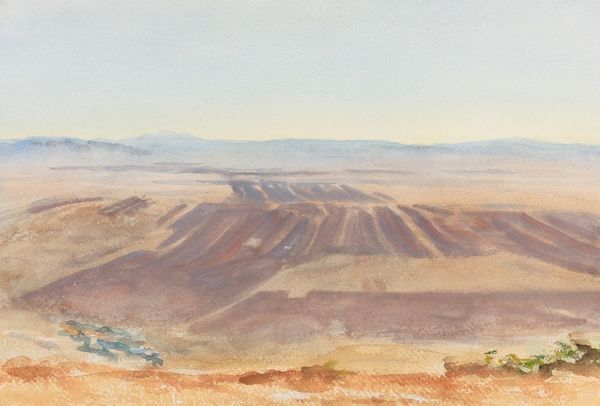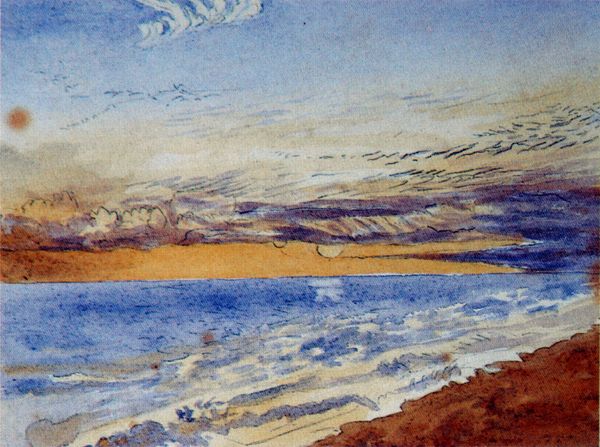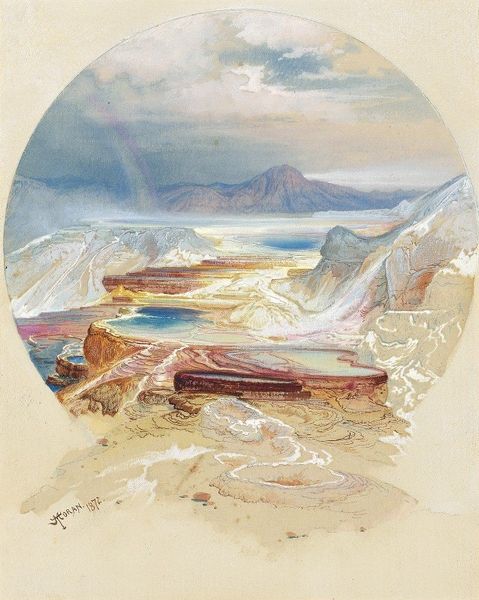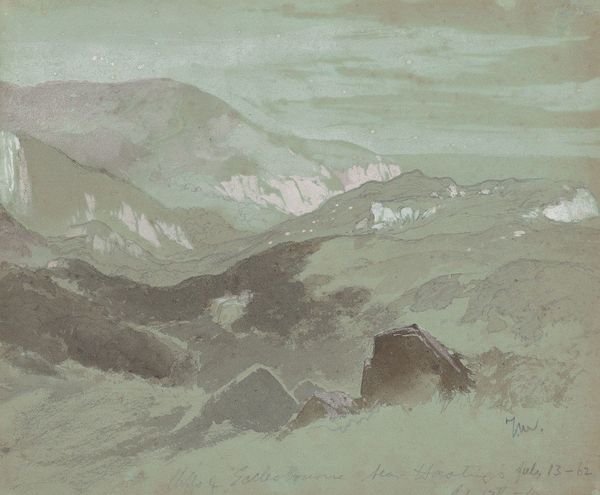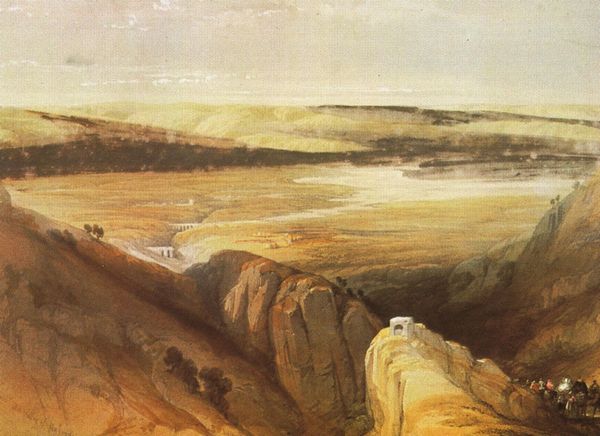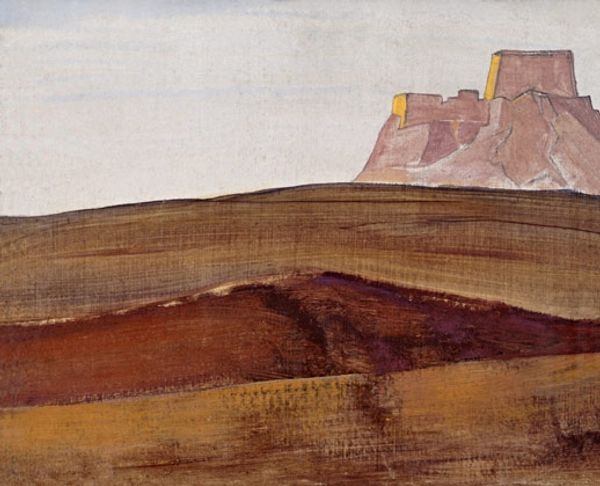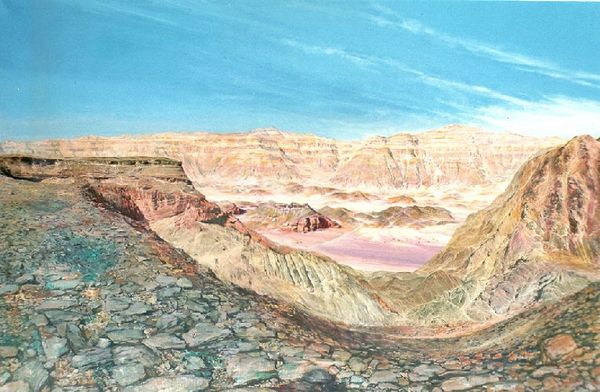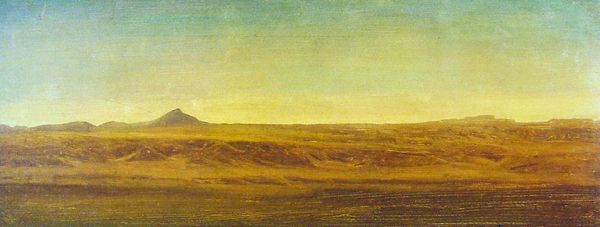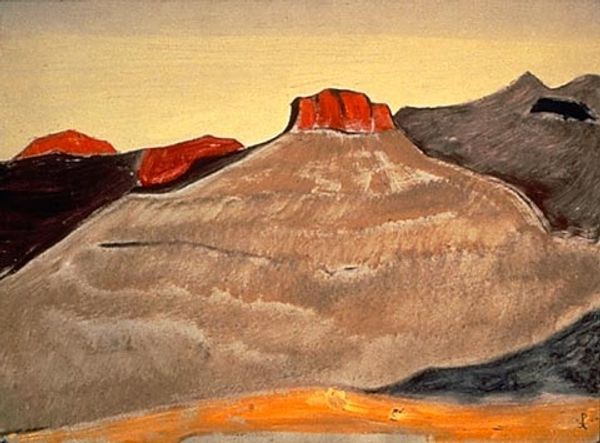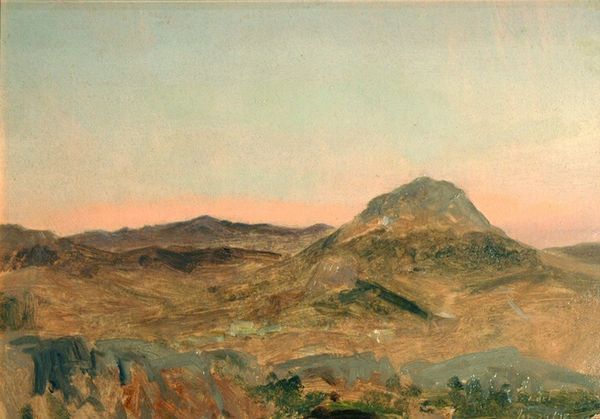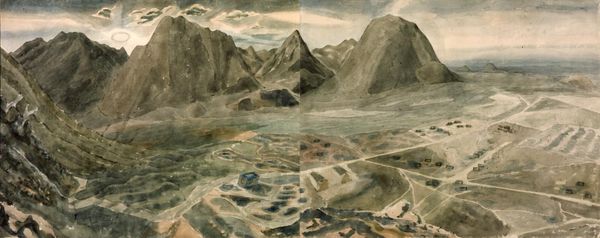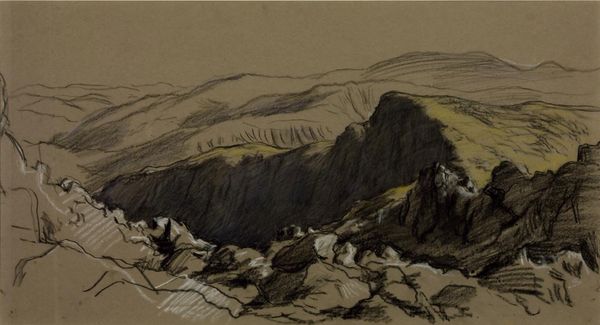
Copyright: Public domain
Editor: So this is “The Walls of Old England” painted by Edward John Poynter in 1914, using oil paint, supposedly en plein-air. The desolate landscape really strikes me. It almost looks like the surface of Mars! What visual echoes do you perceive in this artwork? Curator: Immediately, I'm drawn to the geological symbols – the stratified rocks, the implied history etched into the landscape itself. Poynter, likely intentionally, is not simply depicting a location, but is rather invoking a cultural memory of resilience and permanence through these imposing forms. Notice how the sky, while present, feels secondary? Editor: That makes sense. It really puts the focus on the land. Is that a romantic idea, this enduring England represented by the landscape? Curator: Precisely! The romantic impulse saw nature as a carrier of deep meaning, of national identity. What specific details strike you as evocative, symbolically potent? Editor: The small pools of water down front – they seem almost like tears in the landscape, reflecting the sky but also highlighting the aridity around them. Maybe even signifying something like loss, or nostalgia? Curator: A potent reading! Water, after all, often signifies emotion, the unconscious. Their placement could speak to a collective emotional memory tied to this "old England," one tinged with reflection on what was, what is, and what may be lost. It’s not just land; it's a palimpsest of experiences, layer upon layer. Editor: So, Poynter's landscape is more than just a scene; it’s a carefully constructed symbol? Curator: Indeed. He uses the visual language of landscape to express ideas about national identity and enduring memory. Think of it as England’s geological and cultural DNA coded into a visual space. Editor: It's amazing how much can be packed into what seems like a simple landscape painting. Curator: Precisely! Now, how might our understanding shift if we knew more about the specific location?
Comments
No comments
Be the first to comment and join the conversation on the ultimate creative platform.
